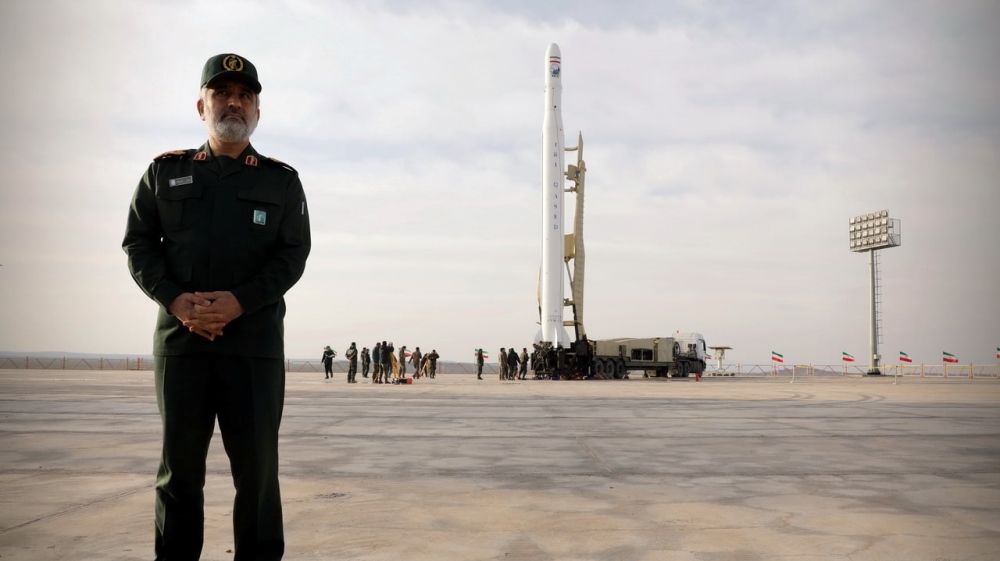
Tehran, Iran – Iran’s Islamic Revolutionary Guard Corps (IRGC) has successfully put a third satellite into orbit, according to officials.
Two officials confirmed on Wednesday that the aerospace division of the elite military force has put the third version of the imaging satellite Nour, which means “light” in Persian, into low orbit.
The Noor-3 was reportedly placed in an orbit 450km (280 miles) from the surface of the Earth and, like its predecessors, was taken to space using a Qased – meaning “messenger” – carrier developed by the IRGC.
Western officials did not immediately comment on the launch on Wednesday.
The first version of the Nour was successfully launched in April 2020 into an orbit 425km (265 miles) above the Earth. It became the first military reconnaissance satellite launched by Iran after several failed attempts.
The second version reached a low orbit of 500km (310 miles) in early 2022 using the mixed-fuel carrier.
Despite criticism from the West, Iranian officials have promised to carry on with the expanding satellite programme and are expected to launch several more satellites into different orbits in the foreseeable future.
In August 2022, an Iranian-owned and Russian-built satellite – said to be capable of taking high-resolution images – was successfully launched from a base in Kazakhstan.
Western allies have suggested the development of Iranian satellites may violate a United Nations Security Council resolution underpinning the country’s 2015 nuclear deal with world powers because the technology could potentially be used to facilitate nuclear weapons.
Iran has repeatedly dismissed such claims, maintaining that its nuclear programme is entirely peaceful.
The nuclear deal, formally known as the Joint Comprehensive Plan of Action (JCPOA), continues to be in limbo after the United States unilaterally withdrew from it in 2018 and reimposed harsh sanctions on Iran.
Iranian officials have recently suggested again that they are open to returning to the accord but would first need to see political resolve from the Western parties, which also include France, Germany and the United Kingdom.
As part of one of the clauses of the accord, a number of restrictions on Iran’s development of ballistic missiles is set to be automatically lifted next month.
But with tensions lingering over the Iranian nuclear programme and Western accusations that Iran has armed Russia with drones for the war in Ukraine, the European powers have said they will maintain their own sanctions on Iran despite the clause.







